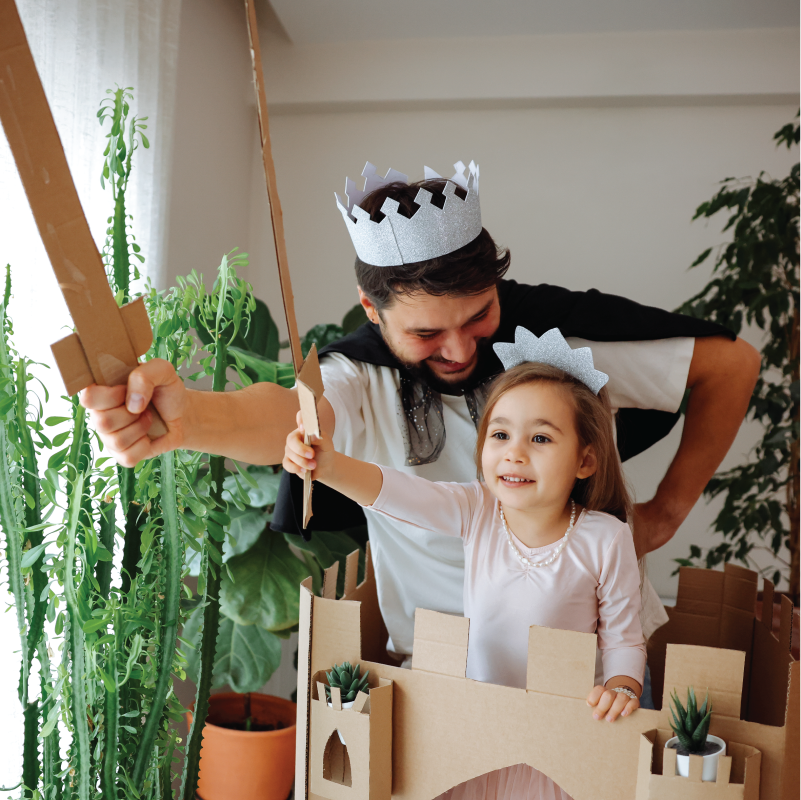
Pretend play is more than just fun and games—it’s a crucial part of early childhood development!
For toddlers and preschoolers, imaginative play opens the door to a world of learning, creativity, and growth.
When children engage in pretend play, they explore different roles, experiment with language, and practice problem-solving. Whether they’re hosting a tea party, playing superhero, or running a pretend grocery store, they’re building cognitive skills, expanding vocabulary, and enhancing social-emotional development.
What are the Benefits of Pretend Play?
Through role-playing, little ones develop empathy by stepping into someone else’s shoes, boosting emotional intelligence. Pretend play also helps improve fine and gross motor skills, especially when they build forts, dress up, or manipulate small objects in their imaginative worlds.
What can you do to Foster Pretend Play?
- Encourage pretend play at home by providing open-ended toys like blocks, costumes, dolls, and play kitchens.
- Join in the fun by letting your child take the lead—whether you’re a customer in their restaurant or a patient in their doctor’s office, you’re supporting their learning journey.
By embracing pretend play, you’re nurturing curiosity, creativity, and essential life skills in your child. So, let the adventures begin—because playtime is learning time!
5 Ways You can Encourage Pretend Play:

Set up a pretend grocery store and take turns being the shopper and cashier.

Have a themed dress-up day where everyone acts as different characters.

Create a fort with blankets and pillows for a camping adventure.

Play doctor and patient with toy medical kits.

Act out favorite stories or fairy tales together.
Acknowledgements:
This blog post was developed with insights provided by April Walker, Director of Education and Innovation, Greater Austin YMCA





